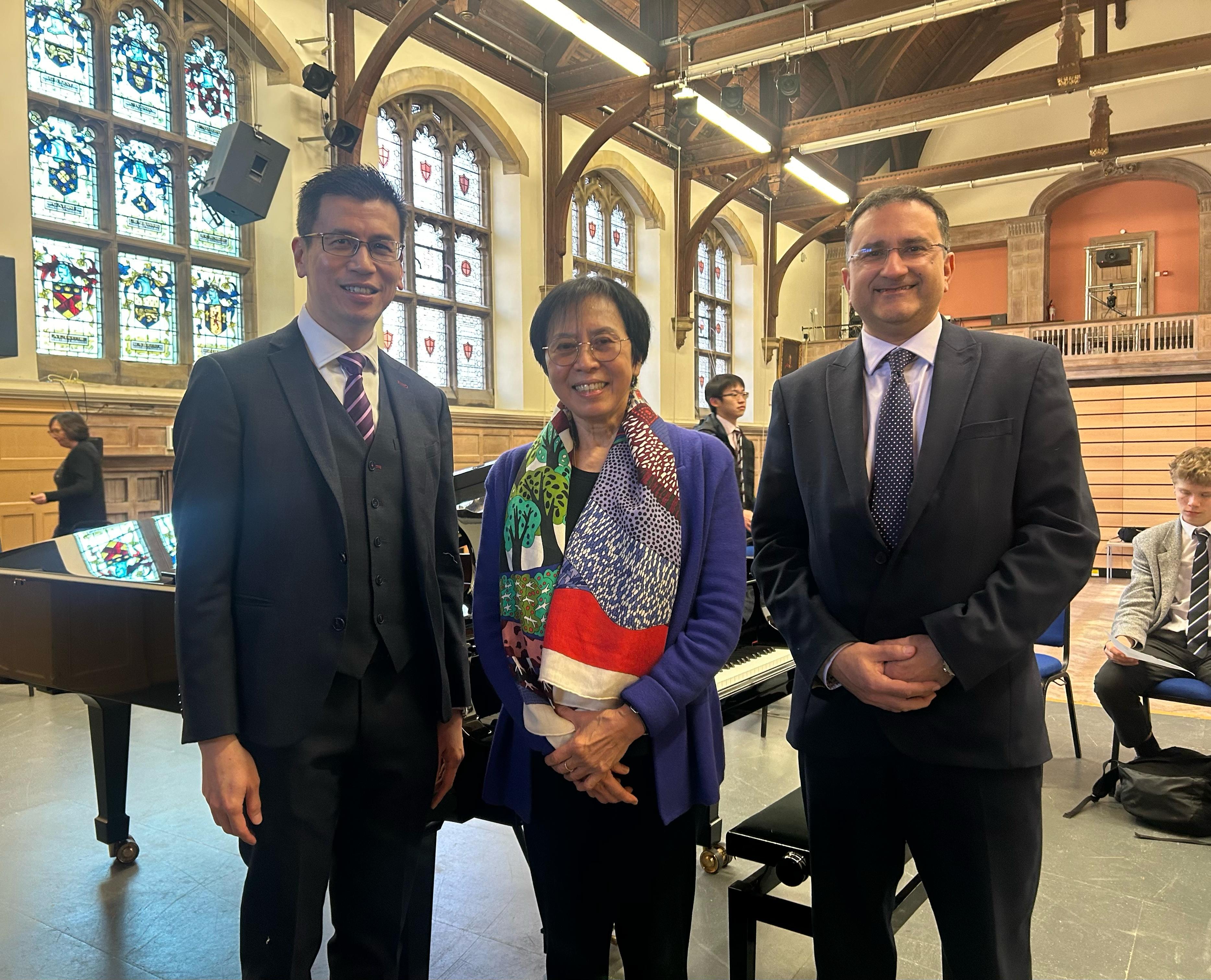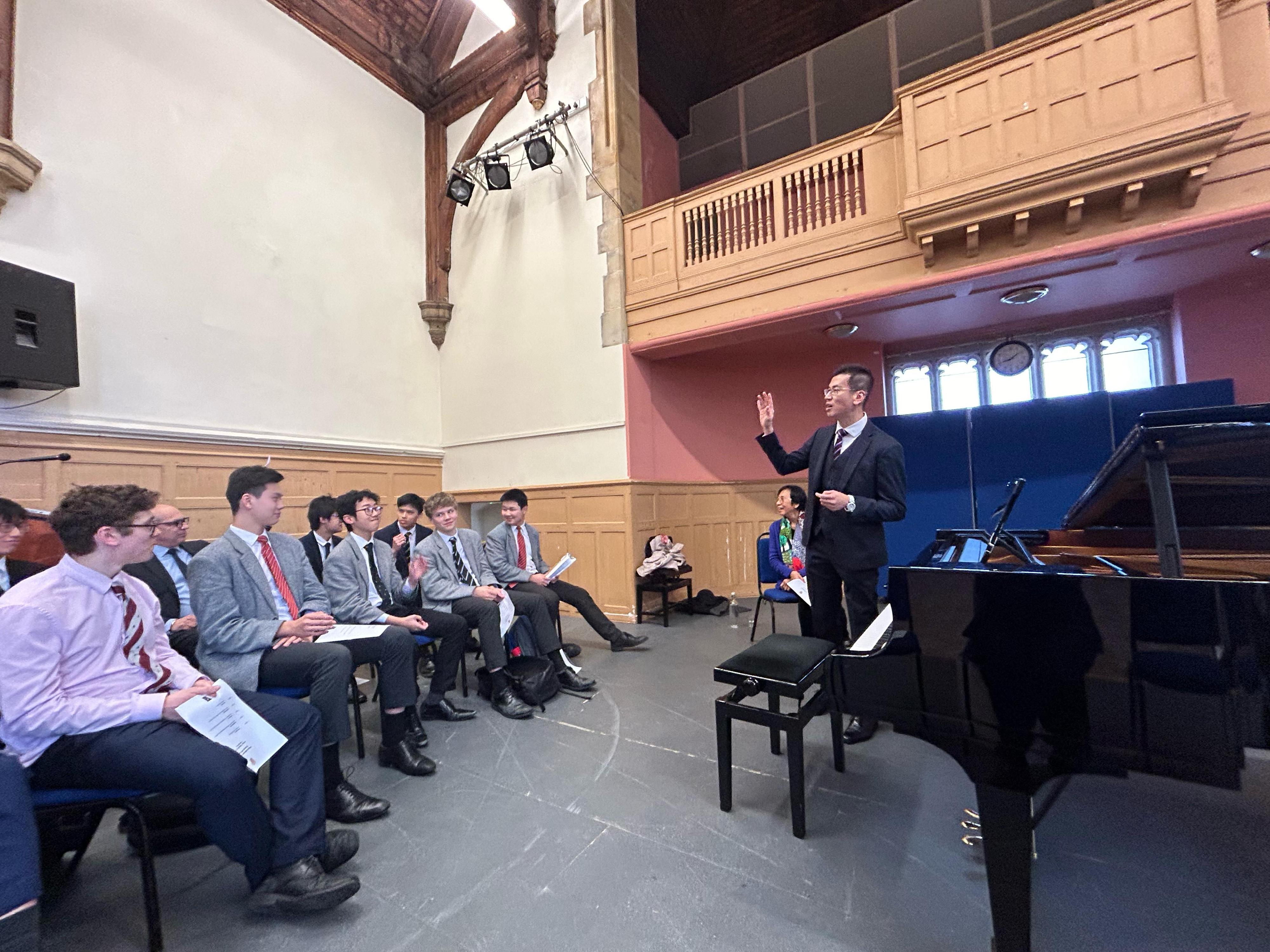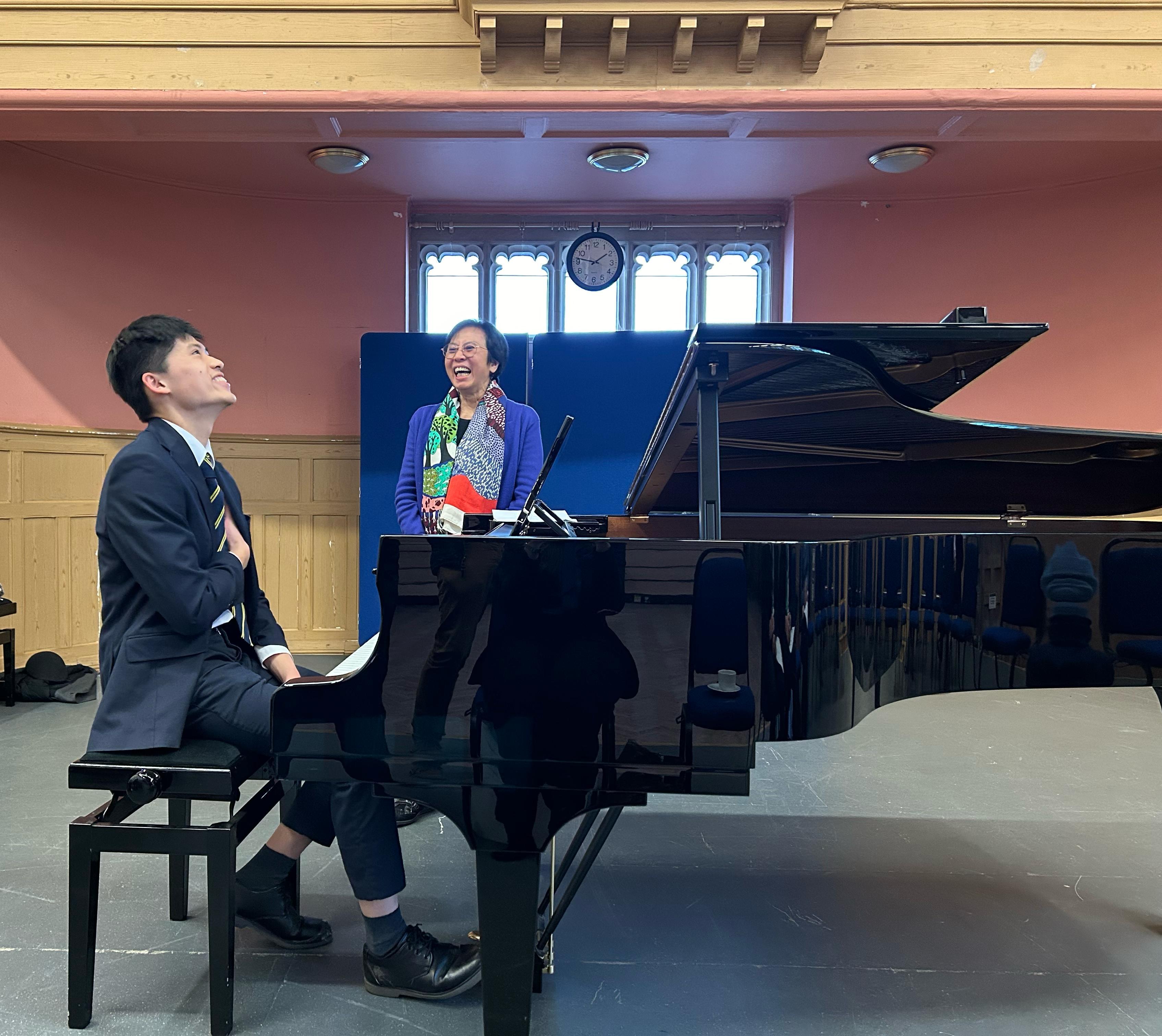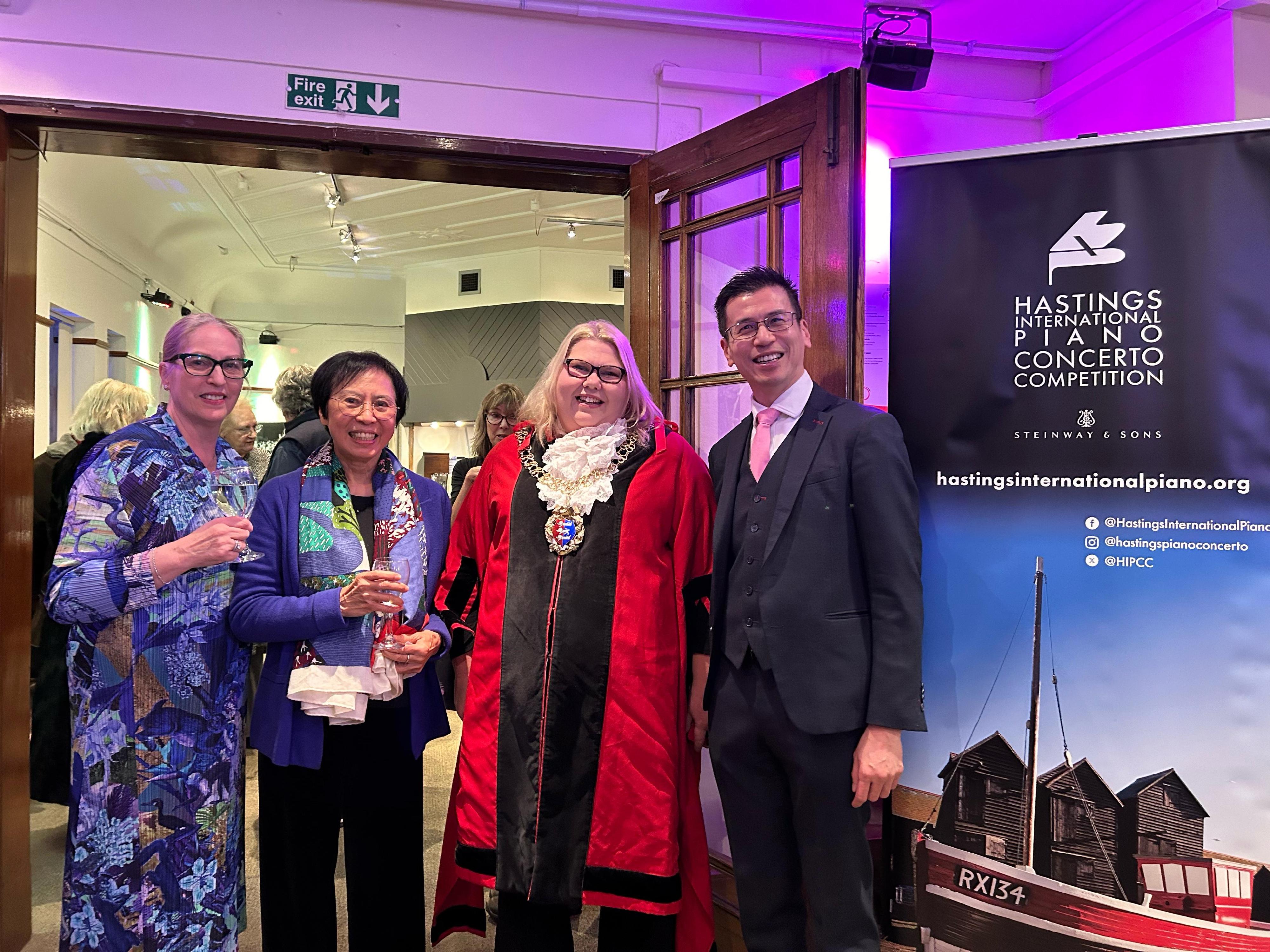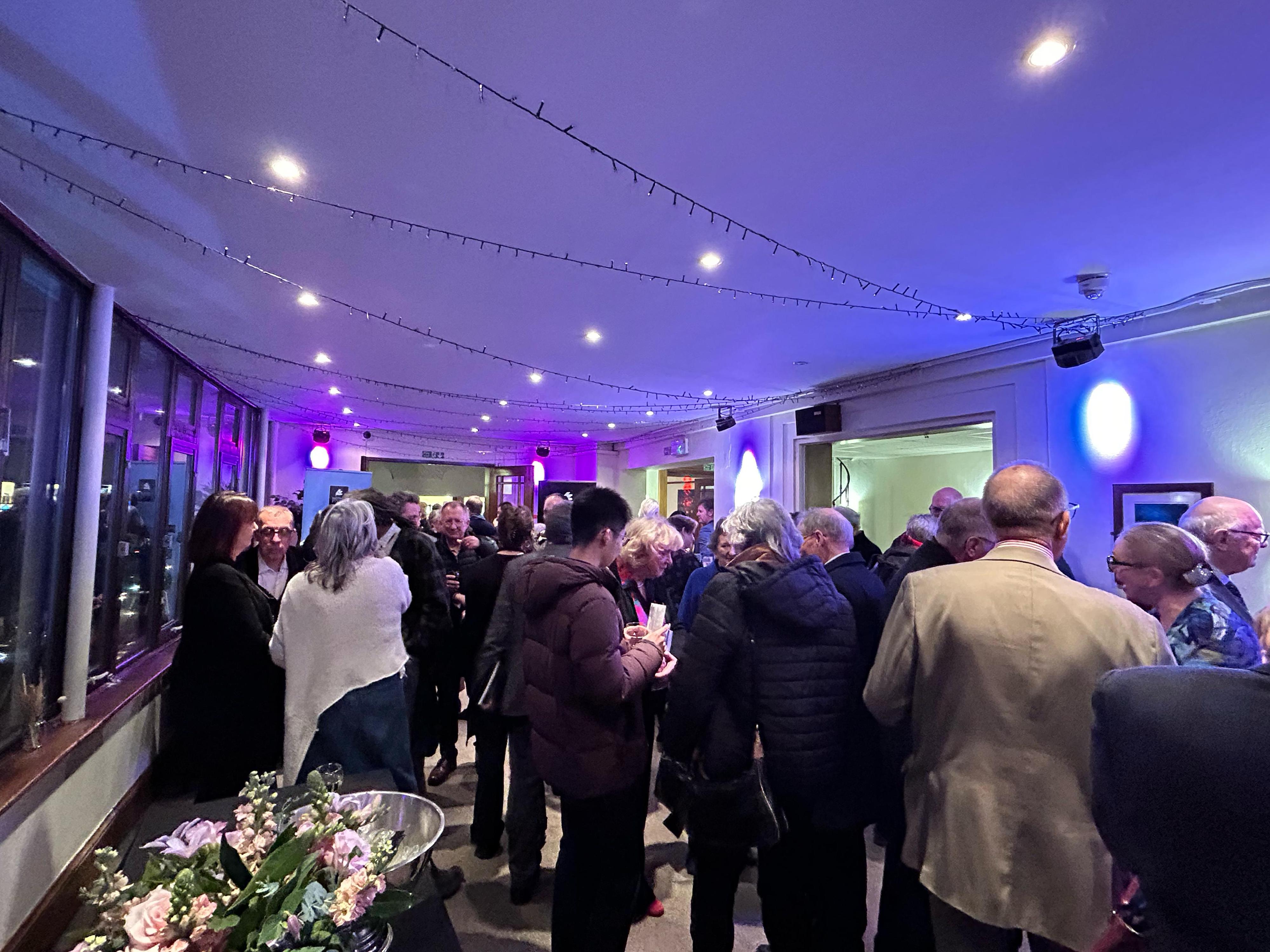The Centre for Health Protection (CHP) of the Department of Health (DH) today (March 3) reminded the public, particularly the elderly and people with chronic illnesses, to adopt appropriate measures to protect their health in view of the cold weather.
A spokesman for the CHP said that cold weather can easily trigger or exacerbate diseases, especially among the elderly and persons suffering from heart disease, respiratory illness or other chronic illnesses.
“Elderly people have less insulating fat beneath their skin to keep them warm and their body temperature control mechanism may be weaker. Their body may not be able to appropriately respond to the cold weather,” the spokesman said.
Some senior persons may have decreased mobility, which can in turn impair their ability to generate and conserve body heat. Chronic illnesses, such as hypertension, diabetes and endocrine disorders may undermine the health of elderly people and lower their metabolic rate, subsequently causing their body to generate less heat. Persons with chronic illnesses such as chronic respiratory illnesses or heart disease are vulnerable to disease aggravation due to cold weather.
The CHP reminded the public, in particular the elderly and persons with chronic illnesses, to adopt the following preventive measures:
- Take note of the weather forecast. Wear warm clothing, including hats, scarves, gloves and socks accordingly;
- Consume sufficient food to ensure adequate calorie intake;
- Perform regular exercise to facilitate blood circulation and heat production;
- Stay in a warm environment and avoid prolonged outdoor exposure;
- Use heaters with care, and maintain adequate indoor ventilation; and
- Seek medical advice if feeling unwell.
In addition, the public should avoid alcoholic beverages.
“Drinking alcohol cannot keep you warm. Alcohol accelerates the loss of body heat through dilated blood vessels, resulting in chilling instead,” the spokesman said.
“Parents should ensure that babies are sufficiently warm, but it is also important to keep babies relatively lightly clothed to avoid overheating them,” the spokesman added.
Parents should observe the following safety measures when putting their children to bed:
- Keep the room well ventilated and at a comfortable temperature;
- Always place babies on their back to sleep. Leave their head, face and arms uncovered during sleep;
- Babies do not need pillows. Place babies on a firm and well-fitted mattress to sleep. Avoid soft objects, pillows and loose bedding;
- Let babies sleep in a cot placed in the parents’ room and near their bed; and
- Maintain a smoke-free environment.
In addition, seasonal influenza vaccination is recommended for all persons aged 6 months or above except those with known contraindications. Persons at higher risk of getting influenza and its complications, including the elderly and children, should receive seasonal influenza vaccination early. Please see details of the vaccination schemes on the
CHP’s website.
A person who gets influenza and COVID-19 at the same time may be more seriously ill and would have a higher risk of death. Influenza vaccination may reduce the likelihood of hospitalisation and the length of stay. It is important for elderly persons, especially those residing in residential care homes, to receive both seasonal influenza vaccination and COVID-19 vaccination. They should also receive an additional booster against COVID-19 according to recommendations as soon as possible. The public should also maintain good personal and environmental hygiene against respiratory illnesses and note the following:
- Surgical masks can prevent transmission of respiratory viruses from ill persons. It is essential for persons who are symptomatic (even if having mild symptoms) to wear a surgical mask;
- Wear a surgical mask when taking public transport or staying in crowded places. It is important to wear a mask properly, including performing hand hygiene before wearing and after removing a mask;
- Avoid touching one’s eyes, mouth and nose;
- Wash hands with liquid soap and water properly whenever possibly contaminated;
- When hands are not visibly soiled, clean them with 70 to 80 per cent alcohol-based handrub;
- Cover the mouth and nose with tissue paper when sneezing or coughing. Dispose of soiled tissue paper properly into a lidded rubbish bin, and wash hands thoroughly afterwards;
- Maintain good indoor ventilation;
- When having respiratory symptoms, wear a surgical mask, refrain from work or attending classes at school, avoid going to crowded places and seek medical advice promptly; and
- Maintain a balanced diet, exercise regularly, take adequate rest, do not smoke and avoid overstress.
Food-borne diseases, particularly those linked to hot pot cuisine, are also common in cold weather. The following preventive measures should be taken:
- Wash hands before handling and consuming food;
- Do not patronise unlicensed vendors or those with poor hygienic standards while selecting food;
- Wash and cook all food thoroughly;
- Vegetables should be washed thoroughly in clean running water before cooking and consumption. When appropriate, scrub vegetables with hard surfaces with a clean brush to remove dirt and substances, including pesticide residues and contaminants, from the surface and crevices;
- Shrimps should be fully cooked until the shells turn red and the flesh turns white and opaque;
- For shellfish such as scallops and geoduck, scrub the shells thoroughly and remove internal organs;
- Most hot pot ingredients should be stored in a refrigerator at 4 degrees Celsius or below, while frozen food should be stored in a freezer at -18 degrees C or below;
- Never use raw eggs as a dipping sauce for hot pot; and
- Use different sets of chopsticks to handle raw and cooked food to avoid cross-contamination.
In addition, when using fuel-burning appliances, especially in indoor areas, the public should ensure adequate ventilation to avoid harmful exposure to carbon monoxide (CO) and prevent CO poisoning.
For more health information, the public may call the DH’s Health Education Infoline (2833 0111) or visit the
CHP’s website and
Facebook Fanpage.
The public may also call Dial-a-Weather (1878 200) or visit the
website of the Hong Kong Observatory for the latest weather information and forecast, or its
page on Weather Information for Senior Citizens.
read more


